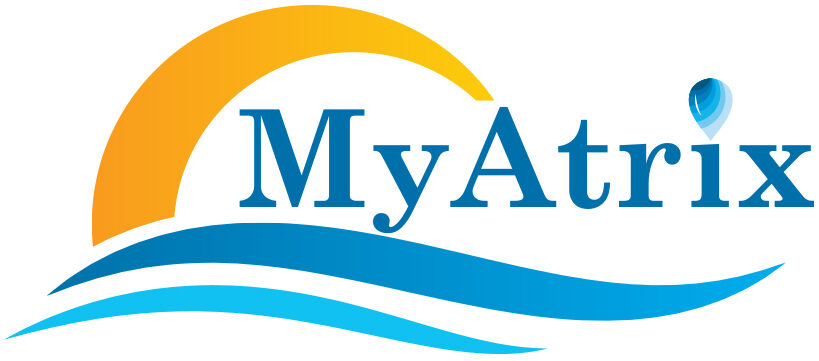A Global Partner You Can Trust
OUR STORY
Since 1998
“At MyAtrix (SII LTD), we specialize in the import and export of agricultural products, driven by a deep connection to the food and agricultural industries. More than consultants, we are partners who highly value the relationships we cultivate with our clients and within the broader food system. Our commitment goes beyond transactions; it’s about bridging the trust gap and delivering tangible results. We thrive on challenges, continuously promoting original thought in our approach. Our passion extends to actively participating in and advancing the dialogue surrounding the production, processing, distribution, and consumption of food. By contributing to the narrative of the food system, we take immense pride in the meaningful work we do.”


Our Mission
“Our mission is to provide unparalleled import and export services, delivering high-quality products with a commitment to exceptional service. We forge enduring relationships with both our customers and suppliers, aiming to exceed expectations in every interaction. Specializing in [specify industry or type of products], we pledge to stay at the forefront of innovation and adaptability. Our unwavering dedication is to be the trusted partner, recognized for our unique approach and as the go-to solution for all our customers’ import and export requirements.”
Core Values
- Integrity: Conduct business with honesty, transparency, and ethical practices. Uphold the highest standards of integrity in all dealings with clients, suppliers, and stakeholders.
- Reliability: Build a reputation for consistently delivering on commitments. Strive to be a reliable and trustworthy partner in every aspect of import and export operations.
- Customer Focus: Prioritize the needs and satisfaction of customers. Provide excellent service and value by understanding and meeting or exceeding customer expectations.
- Innovation: Foster a culture of creativity and innovation to stay ahead in a dynamic global market. Seek continuous improvement and explore new solutions to enhance efficiency and effectiveness.
- Relationship Building: Cultivate strong, long-term relationships with clients, suppliers, and partners. Understand the importance of collaboration and mutual success in the import and export industry.
- Adaptability: Embrace change and demonstrate flexibility in response to evolving market conditions, regulations, and customer demands. Stay agile to navigate the complexities of international trade.
- Quality Excellence: Commit to delivering high-quality products and services. Ensure that imported and exported goods meet or exceed industry standards and regulations.
- Social Responsibility: Consider the social and environmental impact of business operations. Strive to contribute positively to the communities and environments affected by import and export activities.
- Professionalism: Maintain a high level of professionalism in all interactions. Present a positive and competent image to clients, suppliers, and stakeholders at all times.
- Team Collaboration: Foster a collaborative and inclusive work environment. Recognize the value of teamwork and collaboration among employees to achieve common goals.
- Risk Management: Prioritize the identification, assessment, and mitigation of risks associated with international trade. Develop strategies to manage uncertainties effectively.
- Continuous Learning: Encourage a culture of ongoing learning and development. Stay informed about industry trends, regulations, and best practices to adapt and grow in the import and export field.
Sourcing
- Define Your Requirements: Clearly outline the specifications, quantity, quality standards, and any other requirements for the products you intend to import. This will guide your search for suppliers.
- Research Potential Suppliers: Utilize online platforms, trade directories, industry exhibitions, and referrals to identify potential suppliers. Look for suppliers who have a good reputation, experience in your industry, and a track record of delivering quality products.
- Verify Supplier Credentials: Conduct due diligence on potential suppliers. Verify their business registration, certifications, and compliance with relevant industry standards. Check for reviews and testimonials from other clients to assess their reliability.
- Communication: Initiate communication with potential suppliers. Clearly articulate your requirements and expectations. Discuss product specifications, pricing, payment terms, delivery schedules, and any other relevant details.
- Sample Testing: Request product samples to evaluate quality. This step is crucial in ensuring that the products meet your standards before committing to larger orders. Evaluate samples for quality, consistency, and adherence to specifications.
- Negotiation and Agreements: Engage in negotiations with the selected suppliers. Discuss terms such as pricing, payment terms, minimum order quantities, and delivery schedules. Once both parties are in agreement, document the terms in a contract or purchase agreement.
- Quality Assurance and Inspections: Implement a quality assurance process. Consider third-party inspections or visits to the supplier’s facilities to ensure that the production process aligns with your quality standards.
- Establish Relationships: Building strong relationships with suppliers is crucial for long-term success. Open communication channels, address issues promptly, and foster a collaborative partnership for mutual benefit.
- Logistics and Shipping: Work out the logistics of transporting goods from the supplier’s location to your destination. Consider factors such as shipping methods, customs regulations, and the overall supply chain.
- Risk Management: Identify and assess potential risks associated with the sourcing process. Develop contingency plans to mitigate risks related to quality issues, supply chain disruptions, or geopolitical factors.
- Stay Informed: Stay informed about industry trends, market conditions, and any changes in regulations that may impact your sourcing strategy. This information will help you adapt and make informed decisions.
- Continuous Improvement: Regularly evaluate and optimize your sourcing processes. Seek feedback from suppliers and clients to identify areas for improvement and implement changes as needed.







